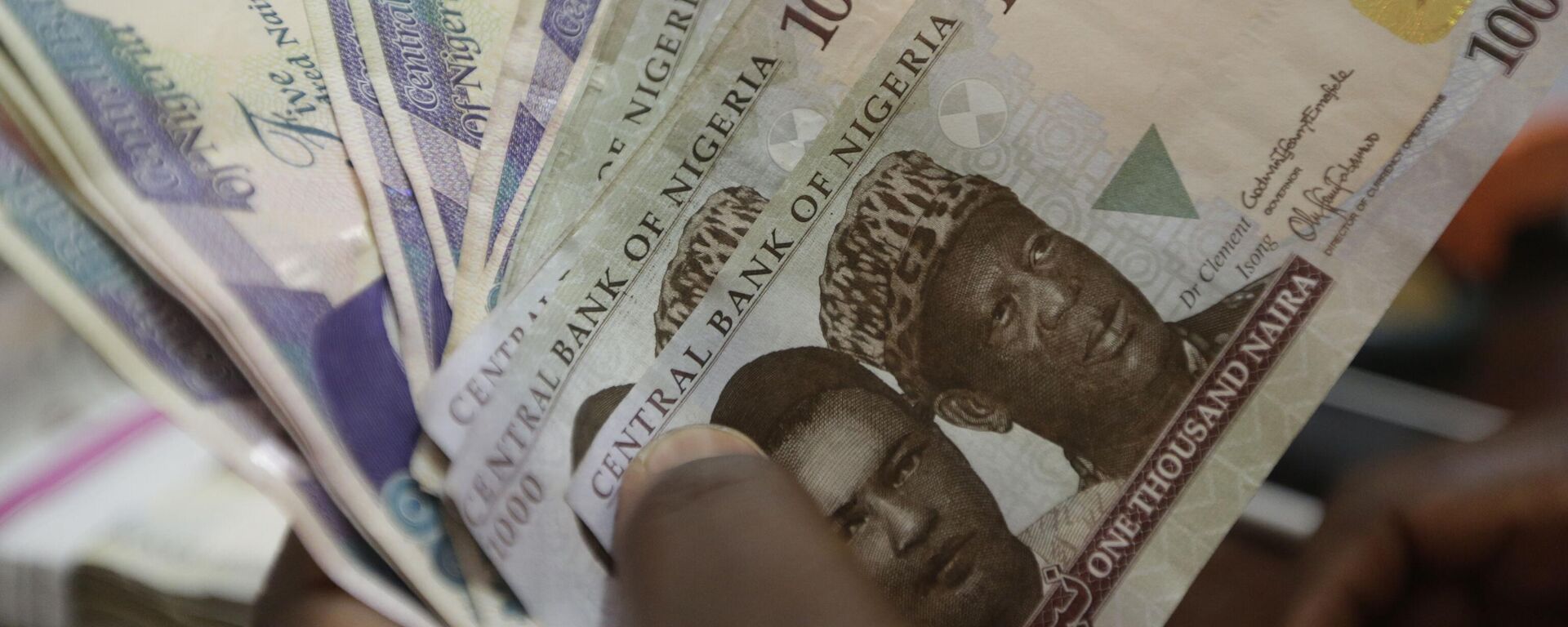https://en.sputniknews.africa/20240518/binance-financial-crime-compliance-head-denied-bail-in-nigeria-for-alleged-money-laundering-charges-1066608959.html
Binance Financial Crime Compliance Head Denied Bail in Nigeria for Alleged Money Laundering Charges
Binance Financial Crime Compliance Head Denied Bail in Nigeria for Alleged Money Laundering Charges
Sputnik Africa
Tigran Gambaryan is the head of financial crime compliance for Binance — one of the world’s largest cryptocurrency exchanges. He was arrested on February 28... 18.05.2024, Sputnik Africa
2024-05-18T15:57+0200
2024-05-18T15:57+0200
2024-05-24T12:17+0200
sub-saharan africa
nigeria
west africa
crime
cryptocurrencies
court
tax evasion
economy
bribe
binance
https://cdn1.img.sputniknews.africa/img/07e8/05/12/1066609590_0:160:3072:1888_1920x0_80_0_0_63ef719d43809f61dd8f4cdb00461366.jpg
A Nigerian court denied Tigran Gambaryan bail, stating that he was likely to flee the country.Upon arrival in Nigeria, Gambaryan was apprehended together with his colleague Nadeem Anjarwalla, a dual national of Kenya and the UK, who has been on the run since he escaped from custody in capital Abuja in March. According to some reports, Anjarwalla was found in Kenya and is close to being extradited to the West African country.Aside from the claims of money laundering, the Economic and Financial Crimes Commission has also brought a second case against Binance, claiming that it operated without proper registration to process remittances in Nigeria, thereby committing tax evasion.According to Binance executives, Nigerian authorities demanded a bribe of $150 million in cryptocurrency from the two suspects during an earlier visit in January. The Nigerian House of Representatives committee reportedly claimed the accusation was "an attempt to distract and draw attention away from the serious allegations of criminality against it," adding that Binance used "sophisticated criminality" to assist its employee in fleeing.Nigerian policymakers have attempted to control and impose limitations on virtual currency activities within the nation. Officials have attributed the country's currency instability, with the naira reaching record lows versus the US dollar, to an increase in cryptocurrency transactions.Amid this growing regulatory scrutiny, earlier in May, the Central Bank of Nigeria imposed a new cybersecurity levy on domestic electronic transactions in an effort to strengthen the country's cyber defenses. All banks and mobile money carriers will be required to impose a 0.5% fee on the amount of each transaction.The revenues raised by this tax will be managed by the Office of the National Security Adviser and used to improve cybersecurity infrastructure and capabilities in the country.
https://en.sputniknews.africa/20240507/nigeria-implements-cybersecurity-levy-on-domestic-transfers-1066417972.html
nigeria
west africa
Sputnik Africa
feedback@sputniknews.com
+74956456601
MIA „Rossiya Segodnya“
2024
Christina Glazkova
https://cdn1.img.sputniknews.africa/img/07e7/0b/07/1063380906_0:0:673:674_100x100_80_0_0_79628b4d0cd9f29291a57aa13bbf9e7a.jpg
Christina Glazkova
https://cdn1.img.sputniknews.africa/img/07e7/0b/07/1063380906_0:0:673:674_100x100_80_0_0_79628b4d0cd9f29291a57aa13bbf9e7a.jpg
News
en_EN
Sputnik Africa
feedback@sputniknews.com
+74956456601
MIA „Rossiya Segodnya“
Sputnik Africa
feedback@sputniknews.com
+74956456601
MIA „Rossiya Segodnya“
Christina Glazkova
https://cdn1.img.sputniknews.africa/img/07e7/0b/07/1063380906_0:0:673:674_100x100_80_0_0_79628b4d0cd9f29291a57aa13bbf9e7a.jpg
nigeria, west africa, crime, cryptocurrencies , court, tax evasion, economy, bribe, binance
nigeria, west africa, crime, cryptocurrencies , court, tax evasion, economy, bribe, binance
Binance Financial Crime Compliance Head Denied Bail in Nigeria for Alleged Money Laundering Charges
15:57 18.05.2024 (Updated: 12:17 24.05.2024) Christina Glazkova
Writer / Editor
Tigran Gambaryan is the head of financial crime compliance for Binance — one of the world’s largest cryptocurrency exchanges. He was arrested on February 28 for allegedly laundering $34,400,000 through the Binance platform. Gambaryan, however, pleaded not guilty.
A Nigerian court
denied Tigran Gambaryan bail, stating that he was likely to flee the country.
“The fact that the passport of the defendant is with the complainant does not guarantee that he will remain in Nigeria because the defendant is not only an American citizen but also an Armenian citizen by birth,” local reports quoted the judge as saying.
Upon arrival in Nigeria, Gambaryan was apprehended together with his colleague Nadeem Anjarwalla, a dual national of
Kenya and the UK, who has been on the run since he escaped from custody in capital Abuja in March. According to some reports, Anjarwalla was found in Kenya and is close to being extradited to the West African country.
Aside from the claims of money laundering, the Economic and Financial Crimes Commission has also brought a second case against
Binance, claiming that it operated without proper registration to process remittances in Nigeria, thereby committing
tax evasion.According to Binance executives, Nigerian authorities demanded a
bribe of $150 million in cryptocurrency from the two suspects during an earlier visit in January. The Nigerian House of Representatives committee reportedly claimed the accusation was "an attempt to distract and draw attention away from the serious allegations of criminality against it," adding that Binance used "sophisticated criminality" to assist its employee in fleeing.
Nigerian policymakers have attempted to control and impose limitations on virtual currency activities within the nation. Officials have attributed the
country's currency instability, with the naira reaching record lows versus the US dollar, to an increase in cryptocurrency transactions.
Amid this growing regulatory scrutiny, earlier in May, the
Central Bank of Nigeria imposed a new cybersecurity levy on domestic electronic transactions in an effort to strengthen the country's cyber defenses. All banks and mobile money carriers will be required to impose a 0.5% fee on the amount of each transaction.
The revenues raised by this tax will be managed by the Office of the National Security Adviser and used to improve cybersecurity infrastructure and capabilities in the country.



